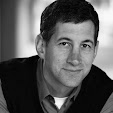The morning
I do have to note the slow start today bsy ome vendor-sponsored Keynotes. It opened with Mark Thiele, VMware's Director of Business Operations, giving IMHO a distinctly plain-vanilla overview of virtualization's benefits. Yawn. But things picked up with Henry Wong of Intel (and a frequenter of meetings such as this, the Green Grid, and others) giving a somewhat more interesting retrospective -- he had found a presentation given to this group in 2006 called "picking the golden nuggets", 5 suggestions he made to the group a few years ago:
- Vitualize/consolidate
- Use power-saving features
- Turn-off comatose servers
- Eliminate bloatware
- Improve site infrastructure energy efficiency
The third, and most interesting am keynote was from Dave Anderson, IBM's Green Architect. He advocated a completely holistic approach to managing power and energy efficiency in data centers, and predicted that Cloud Computing is ultimately where IT is evolving to. Resources will be dynamically allocated -- with data centers compared to orchestras, where "ensembles" of similar equipment being purposed and re-purposed for like tasks. This is the only way we'll reap breakthrough IT efficiency. Kinda sounds familiar...
Next was a panel on "The business case for IT energy efficiency" moderated by Jon Koomey (of Stanford U as well as Lawrence Berkeley Labs) and Debra Grove, and including Andrew Fanara of the EPA/Energy Star program, and representatives from Allstate Insurance, Yahoo! and HSBC. Talk was wide-ranging, and included the (highly likely) legislation that could help cap/trade carbon emissions, and closing the social division between IT ops and Facilities. And I believe that all agreed that "green" ultimately has to result in $$ savings, not just goodwill.
Afternoon
Following lunch, I gave a talk on "Is it bad to turn off servers - and other myths hurting energy-efficient operation of your data center". Long title, short message: "Conventional wisdom" in data centers is confining our thinking, and limiting breakthrough efficiencies. If we look to combine efficient equipment with efficient operation of that equipment, then we can move beyond incremental efficiency increases.
I then attended an insightful presentation on Energy Star computer power supplies by Chris Calwell of Ecos, and a SPECpower overview by Klaus Lange of SPEC. These guys are the ones doing the heavy-lifting for our benefit. SPECpower had been initiated back in 2006, and is an elegant approach to rating compute load vs. power consumption. It's so easy to run that you can even do it at home -- even though vendors are expected to provide customers with a series of data for their own products. Finally we have a generally-accepted way to benchmark server power consumption under load! Similarly, studies are being done on power supplies for Tier I servers by Ecos (on behalf of Energy Star) for a forthcoming Energy Star ratings. It became clear that many power supplies are likely over-sized -- and, at low loads, are (1) terribly inefficient, and (2) have a seriously-degraded power factor. But there are products out there with superior (90-95%) performance at nearly all power levels.
Evening
We closed today with a reception as well as a series of Uptime Institute Green IT awards for a number of innovative projects - which I believe will be posted to the Uptime Institute Awards site shortly.
Oh - and a somewhat retold refrain heard from a number of participants today: "what are we doing when we get back to the office? measure, measure, measure..."




No comments:
Post a Comment